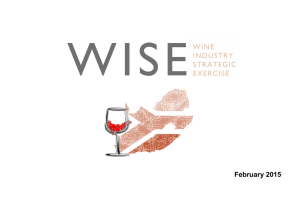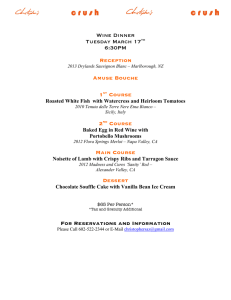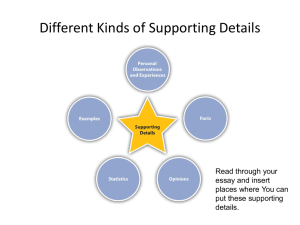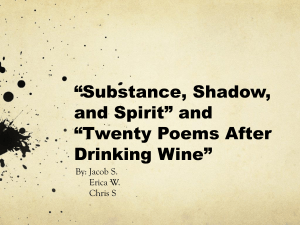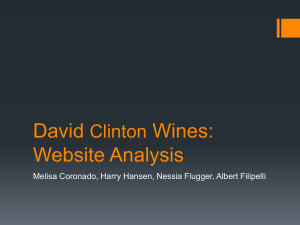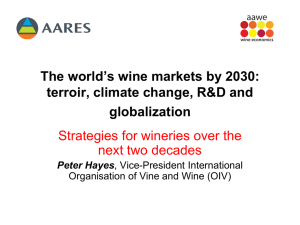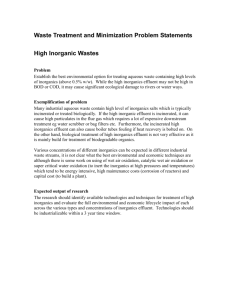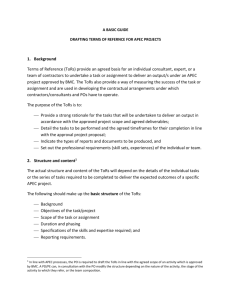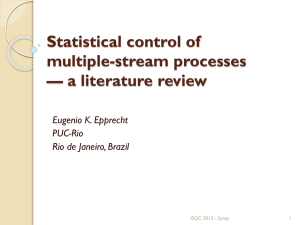Slide 3
advertisement
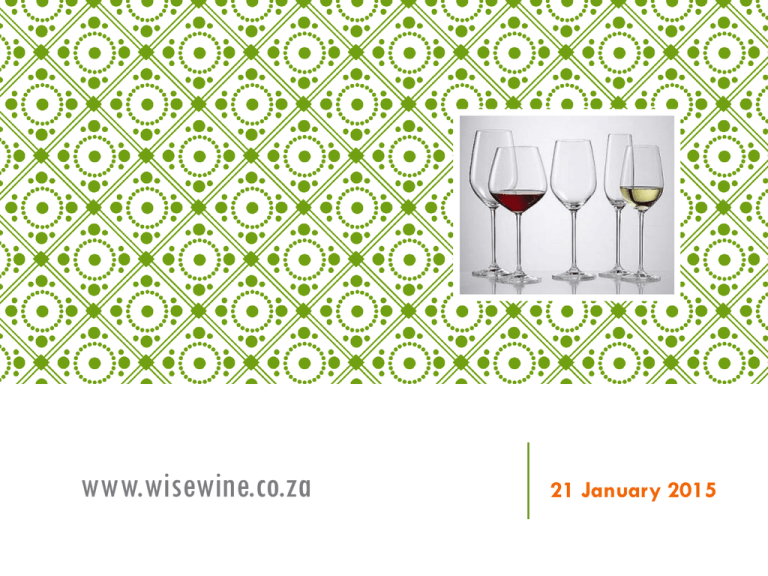
www.wisewine.co.za 21 January 2015 Context Labour Stakeholder groups and needs The following stakeholder groups and needs were discussed: Civil Society Key objectives Business Government To develop a strategic framework that is adaptable, robust, globally competitive and profitable. Setting aspirational targets that will bring coherence to industry initiatives. Methodology Literature review & survey Slide 2 Workshop Work stream actions Implementation Plan Timeline January – September 2015 November – December 2014 June – October 2014 May 2014 Work streams Identify key enablers Baseline & Literature review Actions: • Questionnaires • Priority matrix • Key enablers • Vision 2020, Business and themes WIP 1&2, FISC, • Future state NDP, etc. • Sign-off Phase 1: Develop report and Slidebaseline 3 identify stakeholder needs Actions: • Workshops – task team and work streams • Identify challenges and opportunities in current state • Workshop “to be” • Input from subject matter experts • Identify projects to develop ToRs Develop ToRs and appoint implementation agents Actions: • Develop ToRs • Appoint service providers/ implementatio n agents Government Civil Society Phase 2: Work streams and project identification Monitor project implementation phase Actions: • Consultation • Monitor project roll-out • Timeous feedback to task team • Project management Final Sign-off in form of Social Compact Phase 3: Project implementation and monitoring Slide 3 The WISE Work Streams As was mentioned above, six work streams have been identified to guide this project. These work streams are also the strategic objectives of the Wine Industry Strategy Plan, which is the main strategic driver of change in the South African Wine Industry. The WISE work streams are elaborated upon below. Core focus Core focus Economic development and growth, while broadening the participation of Historically Disadvantaged Individuals (HDI’s). Ensuring that all role-players, including HDI’s, are socially and organisationally capacitated to make a constructive contribution to the industry and South Africa as a whole. Business Promote human capacity development, establish positive workplace image, address backlogs in the supply of skilled workers. Promote “Brand South Africa”, provide market development, promotion and business development services, promote socially responsible alcohol consumption, establish linkages between the wine industry and tourism. Provide trusted and accurate market information to support product quality and integrity and to assist strategic leadership in industry level decision-making. Government Create a technology innovation Business model for Civil Society the wine industry and facilitate market directed and socially and environmentally responsible technology development and transfer systems. Slide 4 Project selection Ideal future state 6 WORK STREAMS Industry realities Discussio ns Economic empowerment and development (stimulate growth) Market development and promotion (work more collectively) 10 Projects Social development and upliftment (improve livelihoods) Knowledge and information development (more business orientated) HR development and training (be more open, look more global) Technology innovation and transfer (increase efficiency) Projects 1 Transformation plan from industry to government 2 Brand SA local marketing strategy (incl. educating consumers) 3 Wine Tourism Baseline Study and Strategy Development 4 Single SA Wine Industry Portal and search engine 5 Data analysis, market & consumer research – Ongoing, only outsource certain reports for next year / two, but industry needs to work together 6 Price point analysis of supply chain packaged & bulk wine 7 Wine Social Compact and local forums 8 L&D Implementation plan 9 Technology & innovation strategy for wine value chain 10 Non-tariff barrier analysis Slide 5
